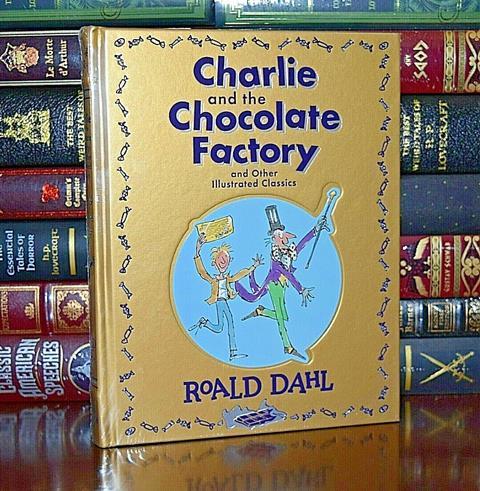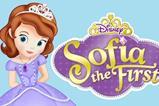Becky May takes us through the maze of considerations regarding revisions to Roald Dahl’s writing

You must have been caught in Mr Twit’s monkey cage or eaten by The Enormous Crocodile to have missed the storm surrounding the news that Roald Dahl’s publishers, Puffin books, had changed some of the language in the very well-known and well-loved children’s books. Famous authors, politicians, actors amongst others have waded into share their opinion on the subject, and the latest update is that the books will now be available in two forms; classic and modernised.
So how do we as Christian parents respond to this? Firstly, let us be clear here that the question ‘should we change the language,’ is quite different to ‘do I want my children to read this?’ Let us think about the language use first, before touching on how we respond to these books.
Dahl’s language
Full disclosure, as a child of the 80s, I hated these books and found them repulsive as our teacher ended day after day with a portion of another chapter of a Roald Dahl classic. I felt I knew every one of them, and hated them pretty much equally. Of course, my response although not unique, was not typical; for many years classrooms and bedrooms across the land have been filled with delighted children hearing the tales and staring in disbelief that their teachers and parents might read such stories to them!
As a teacher, however, I loved the books, the richness of descriptive language used by Dahl and the impact it had on the writing of the children in my class. There were days which I finished with a few pages from a well-thumbed Dahl, although there were occasions when I may have censored the odd word or two, as I did with other authors, to avoid certain words becoming common terminology in the playground.
Words and their meaning do change over time, my son took great delight in learning the Shakespearean insult of biting your thumb at a person, which of course carries no meaning today. In the Dahl books, the changes made are not all about language change; more about circumstances and understanding of situations. They are varied and need to be thought about separately in order to fully understand the reasons for the changes and whether they are necessary or appropriate. There isn’t room here to explore all of them, but it may be helpful to consider a few.
Most headlines over the last few weeks have referenced the fact that ‘ugly’ and ‘fat’ have been dropped; Augustus Gloop is now described as ‘enormous’ and Mrs Twit, ‘beastly.’ To be honest, I would not have chosen to replace these words and I don’t feel that the edited versions are any better. Both characters were unpleasant and the words Dahl chose to describe them were there for a reason. In these cases, I think it better to keep them in and talk about why we don’t use these words to describe people we know in real life!
Some words, we know, can have an ascribed meaning which is harmful, for instance; one of the changes made by Puffin is the removal of the word ‘black’ from the description in Fantastic Mr Fox of the “murderous, brutal-looking monsters,” (tractors). This is important because of the underlying corporate understanding that develops over time that black = bad. Is this something that we could leave in and explain to children? Perhaps this is a quicker fix to simply to remove the word, or perhaps what is needed here is a move in writing and creating now which does not further reinforce this message?
Finally, other changes made are around the change in circumstances, for instance the witches no longer work as cashiers and PAs but as “top scientists” and business leaders. Two things have happened here; in an effort to remove stereotypes of women in working low level jobs, they have missed the point that these women are not top of anything; they are living unremarkable jobs. Here it would be far better to keep the original wording, and to talk about what ordinary jobs may look like today, or about the fact that women do have more opportunities than they once did.
Should we change the wording of these books? It is my belief that occasionally a word may be so inappropriate or have changed it’s meaning so much that it does need to be addressed, in Roald Dahl’s lifetime, his original description of the Oompa Loompas was rightly challenged and changed, for instance. But generally, I think this is a poorly thought through commercial decision where the publisher has judged it better to ‘modernise’ in an attempt to keep sales going, rather than maintain the integrity of the work, and address some of the changing attitudes through our discussions about them. By correcting or censoring the work of the author many years after publication we distort both the stories they have written, the story of the author and our story as an ever-evolving human race. I believe it is better to leave the books as they are, and judge whether they still have validity in society today.
How should we respond?
So how should we as Christian parents respond to these books? I think there are a couple of factors for us to consider:
Roald Dahl himself
In recent years, much has been discovered or shared about him as a person, not all positive, indeed some of it very harmful. The issue here is that we like to polarise human beings as though they themselves were characters in a children’s book; heroes and villains, goodies and baddies and no one is ever truly either. Dahl did a great deal of good, and caused a great deal of harm, we must tell the whole story and acknowledge that we are equally flawed human beings, rather than simply write a person out of history.
What we allow our children to watch and to read
As Christian parents, there can be a great urge to heavily censor our children’s viewing and reading. As with all other parents, we hold responsibility for what we expose our children to. If we are going to stop them from reading Dahl, there must be other authors, TV programmes and Youtube personalities we will exclude too. And to a point, that is the right response. But there comes a point at which we need to give the children the tools they need to make wise decisions about what they expose themselves to, and then what they do with it. The choices we make about Dahl and all these other influences should be part of an ongoing conversation with our children; is this helping me? Is it honouring others? What issues does it raise for us to talk about? What would Jesus say if I was reading this with him? What do I want to say to Jesus about this programme?
These conversations will help our children with the many different cultural influences they may encounter and give them a good toolkit for addressing some of the difficult decisions they will have to make for themselves.

Sophia the First: friendship, loyalty, gender expectations - why Christian parents need to be alert to this long-running animation
When your parenting journey isn’t what you expect
‘If you think you have ruined God’s plans, don’t worry, you are not that powerful!’ How to support your teen's decision making






























